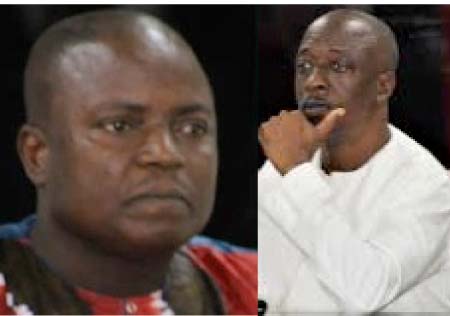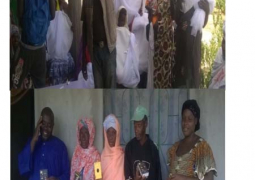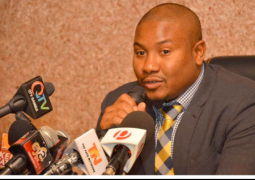
Ensa
Mendy, the second prosecution witness in the murder case involving Yankuba
Touray, on the 18 November, 2019, told the High Court in Banjul before Justice
Ebrima Jaiteh that Yankuba Touray did not kill Koro Ceesay. He was answering
questions under cross-examination by Defence Counsel Abdoulie Sissoho.
When
the case was called, Counsel Sissoho told the court that the state should
produce the statements of the witness dated 2nd July, 2019, and 5th July, 2019.
The witness at this juncture confirmed that he made the said statements.
Counsel Sissoho then applied to tender the statements. The state counsel did
not object to the tendering of the statements. They were subsequently admitted
by the court.
Counsel
Sissoho requested the statements which were made available to him. He then took
permission for the statements to be given to the witness, which was done. He
told the witness to confirm the face of the statements and put it to him that
he was posted to Yankuba’s residence as an orderly and not as a bodyguard.
In
response, he told the court that he was posted briefly as an orderly and was
also told that he was the personal bodyguard of the accused. At this juncture,
he was referred to the statement dated 2nd July, 2019, where it was stated that
he was instructed to be an orderly to the accused. He answered in the positive.
He
was asked what date in July he went on patrol in 1995, and he said that he
could not remember the date. Asked what day was it in July, he replied that he
did not know. “You said in your evidence that you were instructed by the
accused to leave State House between 6 p.m. and 7 p.m. to go to his house,”
Counsel Sissoho put it to him. He responded in the positive.
It
was put to him that he stated in his statements that he was instructed by the
accused to leave State House between 9 p.m. and 10 p.m. He said he disagreed.
He was asked to look at the statement dated 2nd July, 2019, at page two in the
second sentence and told that he went to the house of the accused between 21
hours and 22 hours. He denied it.
He
was quoted in the statement dated 5th July, 2019, at page three as saying: “At
this time, Yankuba called me around 21 p.m. to 22 p.m. to go on patrol.” He said it was correct.
“Between
the two statements you are placed in two places, one at State House and the
other one at the residence of the accused at Kololi,” Counsel Sissoho
challenged him. He answered in the negative.
“As
per the statement dated 2nd July, 2019, between 9 p.m. and 10 p.m. the accused
was still at State House when he instructed you to go home,” Counsel Sissoho
put it to him. He denied it.
He
was asked whether it was not true that in the statement dated 2nd July, 2019,
he stated that between 9 p.m. and 10
p.m. when he got to the residence of the accused, his immediate family members
were inside his residence. He confirmed that he was with them there around 9
p.m.
“Can
you name the family members of the accused at his residence at the time?” asked
Counsel Sissoho. He replied that the wife of the accused, Mamie Minteh, and her
younger sister, Aji Minteh, and the son of the accused, Edward Touray, the
younger one he left there and the maid, as well as the guards and one
Fatoumata.
It
was put to him that he named six people who were at the residence of the
accused and was asked whether he was sure that what he told the court was true.
He responded in the positive. It was also put to him that in June 1995 the
accused had only one child, and he answered in the positive.
He
was referred to the statement dated 2nd July, 2019, at page two in the last
sentence as saying: “As a service man, I stood and observed. The place was very
lonely. No maid. No wife neither the children. I left there.” He was asked
whether he could confirm this, and he said that he wrote it. He further told
the court that this was when he returned from patrol. He added that he did not
see anybody except the accused.
“In
the statement dated 2nd July, 2019, you have confirmed that the accused in
June, 1995, had children,” it was put to him. He replied that he left the
service when he was writing the statement.
“Did
you see the deceased at the residence of the accused?”
“No.”
“Did
you see the accused and the deceased talking?”
“No.”
Hearing
continues today.
Read Other Articles In Article (Archive)
Lamin Waa Juawara & co trial progresses
Dec 1, 2014, 10:42 AM



